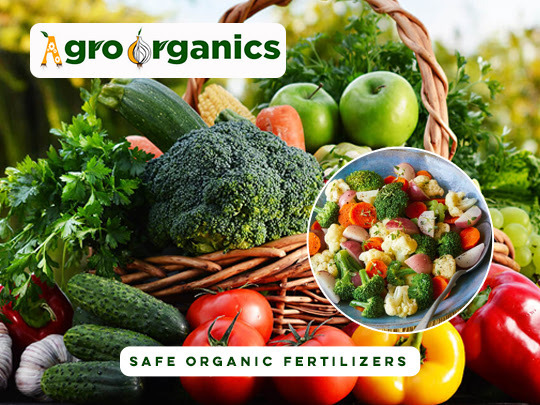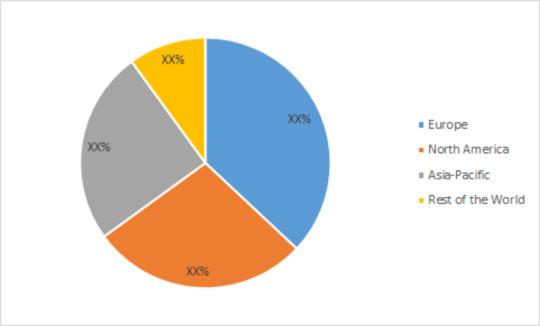#plantgrowthregulators
Explore tagged Tumblr posts
Text
Plant Growth Regulators Market Forecast(2024–2030)

What is plant growth regulator?
Plant growth regulators are the synthetic or natural chemicals that are responsible in controlling the growth and development of the plant. Natural plant growth regulators are produced with in specific parts of plants in minimal qualities and migrate to other parts, manipulating several physiological functions to regulate the plant’s growth such as promoting plant cell division and cell expansion, leaf expansion, retarding senescence of the leaves, ripening of fruits & vegetables, fruit & flower maturation, and seed germination. The major types of plant growth regulators are cytokinins, auxins, gibberellins, ethylene and abscisic acid.
Request Sample :
What are the major applications for Plant growth regulator?
The various end users assessed include fruits & vegetables, turf & ornamental, cereals & grains, oil & seeds, and others. The major fruits that utilize PGR are apples, banana, grapes, mango, litchi, water melon, pine apple, kiwi and others. Vegetables like cucumber, lettuce, spinach, cabbage, pumpkin and others use these plant growth regulators. The main objective for the application of PGR in fruits and vegetables is to support their ripening. This is achieved by ethylene which is also called as ripening hormone.

Market Research and Market Trends of Plant Growth Regulators Market
RIO, which is developed from natural plant sources, boosts natural plant hormone activity and allows plants to develop more effectively. Environmental Protection Agency has recently approved this bio stimulant from Arysta Life Science, North America which activates endogenous natural plant hormone activity for enhanced plant reproductive growth.
Companies into the manufacturing of PGRs are continuously looking for versatile solutions. One such versatile plant growth regulator is Ethrel. It improves coloration and accelerates uniform ripening of fruits. Moreover it can also applicable for specific uses that include defoliation in pomegranate and breaking alternate bearing in mango, etc.
Inquiry Before Buying :
Who are the Major Players in Plant growth regulators Market?
The companies referred in the market research report include the BASF, DOW Chemical, FMC Corporation, Nufarm, Syngenta and others.
What is our report scope?
The report incorporates in-depth assessment of the competitive landscape, product market sizing, product benchmarking, market trends, product developments, financial analysis, strategic analysis and so on to gauge the impact forces and potential opportunities of the market. Apart from this the report also includes a study of major developments in the market such as product launches, agreements, acquisitions, collaborations, mergers and so on to comprehend the prevailing market dynamics at present and its impact during the forecast period 2018–2023.
All our reports are customizable to your company needs to a certain extent, we do provide 20 free consulting hours along with purchase of each report, and this will allow you to request any additional data to customize the report to your needs.
Key Takeaways from this Report
Evaluate market potential through analyzing growth rates (CAGR %), Volume (Units) and Value ($M) data given at country level — for product types, end use applications and by different industry verticals.
Understand the different dynamics influencing the market — key driving factors, challenges and hidden opportunities.
Get in-depth insights on your competitor performance — market shares, strategies, financial benchmarking, product benchmarking, SWOT and more.
Analyze the sales and distribution channels across key geographies to improve top-line revenues.
Understand the industry supply chain with a deep-dive on the value augmentation at each step, in order to optimize value and bring efficiencies in your processes.
Get a quick outlook on the market entropy — M&A’s, deals, partnerships, product launches of all key players for the past 4 years.
Evaluate the supply-demand gaps, import-export statistics and regulatory landscape for more than top 20 countries globally for the market.
Schedule a Call :
Plant Growth Regulators (PGRs) are natural or synthetic chemicals that influence various aspects of plant growth and development. These compounds control physiological processes like cell division, elongation, flowering, fruit ripening, and responses to environmental stimuli. The major classes of PGRs include auxins, gibberellins, cytokinins, ethylene, and abscisic acid, each playing a distinct role. For example, auxins regulate cell elongation and root growth, while gibberellins promote stem elongation and seed germination. Cytokinins stimulate cell division, ethylene is involved in fruit ripening and leaf abscission, and abscisic acid helps plants cope with stress, such as drought.
Buy Now :
In agriculture, PGRs are widely used to enhance crop yield, improve plant resilience, and control the timing of growth phases. Synthetic PGRs are often applied to crops to manipulate traits like fruit size, shape, and flowering time. They are also used to manage plant height in ornamental plants or to delay leaf senescence in food crops. However, the application of PGRs must be carefully managed to avoid adverse effects on plant health or ecosystem balance. As scientific understanding of PGRs advances, they are becoming critical tools in sustainable agriculture and horticulture.
Key Market Players:
The Top 5 companies in the Plant Growth Regulators Market are:
BASF SE
DOW Chemical
FMC Corporation
Nufarm
Syngenta
For more Agriculture Market reports — Please click here
0 notes
Link
#plantgrowthregulators#agriculture#crophealth#innovation#sustainability#precisionagriculture#biotechnology#nanotechnology#climatechange#foodsecurity#farming#agriculturetechno...
0 notes
Text

"Biconic biofertilizer: an eco-friendly solution for sustainable agriculture." . . contact us: +91 8076653207
#organicfarmer#organicfertilizer#soilrecharger#organicgarden#organicfarm#organicproduce#organicproduct#cannabis#yukha#stoner#ayurveda#indoorgardening#cannagrowers#cannabisfarmer#cannabisayurvedapack#naturalfertilizer#farmer#biostimulants#provivglobal#plantgrowthregulators#farmersmarkets#organiccotton#soilfertilizer#rendimiento#organicmarket#npk#biofungicida#farmers#farmerlife#supportfarmers
1 note
·
View note
Text
The importance of balanced nutrition in agriculture
Balanced fertilization is essential for agriculture, as it helps maintain the health and productivity of crops. The Multiplex Group understands this importance and offers a range of products that cater to the different needs of farmers. Their products include Multiplex Pesticides, Biopesticides, Fertilizers, Growth Promoters, Bio-Products, Bio-Fertilizers, Micro Nutrients, Organic Manure, and Bio Activators. The Multiplex Group has a strong focus on research and development and has its own biotech lab. This allows them to produce innovative products such as Muti-Micronutrient, Bio-Stimulants, Plant Growth Regulators, Adjuvants & PH Balancers, and Bio-Fertilizers Consortium. All of these products help farmers achieve better yields, improved crop quality, and enhanced disease and pest resistance. Their range of products caters to various agricultural needs such as horticultural, plantation, fruits, flowers, vegetable production, and more. Their portfolio includes Bactericides, Weedicides, Fungicides, and Insecticides that are effective in controlling pests and diseases. Multiplex Group's products help farmers achieve balanced fertilization by providing a complete range of nutrients and micronutrients that are essential for crop growth. They are also environmentally friendly and promote sustainable farming practices. Overall, the Multiplex Group is committed to providing high-quality products that help farmers achieve their goals while ensuring the health of their crops and the environment.
0 notes
Text
youtube
Dhanuka decided - one thing is enough.
If you too are struggling with aphids, whiteflies and blackflies in your chilli crop, use Dhanuka's insecticide Decide! Dhanuka decided - one thing is enough. . . . . . . . #dhanukaagritech #indiakapranamharkisankenaaam #decide #insecticide #whiteflies #onestopsolution #farmer #farmlife #pesticides #herbicides #plants #trees #chilli #mites #fungicide #plantgrowthregulators #agriculture #agrochemicals
0 notes
Text
Safe Organic Fertilizers | Agro Organics
As a eco-friendly farmer/planter, are you looking to preserve your soil health while boosting your crop yield? Get in touch with us & know how our products with organic inputs can increase your yield and also be nature friendly.

Agro Organics www.agroorganics.in
#organicfarming#organicfertilizers#ecofriendly#safeorganicfertilizers#farmingsprayers#micronutrients#plantgrowthregulators
1 note
·
View note
Photo

The Global Plant Growth Regulators Market has been segmented based on origin, crop type, product type, form, function, mode of application, and region.
Get More Information @ https://bit.ly/3l68gfy
#PlantGrowthRegulatorsMarket#PlantGrowthRegulatorsIndustry#PlantGrowthRegulators#Business#Marketing#MRFR
0 notes
Photo

Antitranspirants are compounds applied to the leaves of plants to reduce transpiration. ... Metabolic inhibitors reduce the stomatal opening and increase the leaf resistance to water vapour diffusion without affecting carbon dioxide uptake. Examples include phenylmercury acetate, abscisic acid (ABA), and aspirin.(Souce - Wikipedia) #antitranspirants #transpiration #aba #plantgrowthregulators (at Hisar, Haryana) https://www.instagram.com/p/CDnyFPhh4Ur/?igshid=h6eqk2fpo62h
0 notes
Photo

👩🔬💩👨🔬👿👩🌾💀👨🌾👀🕵🏿♂️ Health conscious smokers have recently made themselves aware of the dangers behind the use plant growth regulators, or PGR’s. Growers use these chemicals, sometimes unknowingly, to promote the short, stocky growth that’s favorable indoors. It’s time to take a closer look at what these compounds are, where they are found, what they do, and their history of agricultural use other than cannabis. Despite healthier growth and increased resistance to fungus, pot grown using PGR’s often has an inferior flavor and visual appearance, and the harshest critics point out that exposure to these compounds put consumers at risk of liver damage, cancer and infertility. These damning claims warrant further investigation of the safety of these chemicals on cannabis. Plant growth regulators, more aptly named “plant growth retardants,” are commercially available in a variety of brand names, and the most common active ingredients are: ancymidol, chlormequat chloride, daminozide, ethephon, flurprimidol, paclobutrazol and uniconazole. Ancymidol, flurprimidol, paclobutrazol and uniconazole are all structurally similar and suppress gibberellin, a natural growth hormone that lengthens cells in the stem. Daminozide and chlormequat chloride also suppress gibberellin at different stages in its biosynthesis. Ethephon is the only PGR that works in a different mode of action; plants uptake ethephon and convert it into ethylene, which in turn suppresses cell elongation and reduces apical dominance. Cannabis exposed to PGR’s grows shorter and more uniform with denser flower that have an abundance of orange hairs and poor flavor. The two compounds of concern in the cannabis world are paclobutrazol and daminozide. These chemicals were found as unlisted, unregistered ingredients in the following cannabis fertilizers: Bushmaster, Gravity, Flower Dragon, TopLoad, PhosphoLoad and BushLoad. Most of these fertilizers have been banned in California mainly due to the fact that the PGR’s were not listed in the bottle, a requirement by law. ��🏿Full Article Online👈🏿 #haveabeautifullife #healthylifestyle #health #cannabis #pgr #plantgrowthregulators #foodproduction (at United States) https://www.instagram.com/p/BsijSWRh2RK/?utm_source=ig_tumblr_share&igshid=gd0gzc469ray
0 notes
Photo

#seaweedfertilizer#algas#foliar #fertilizante #plantgrowthregulator #stimulants #organicfertilizer #kelpfertilizer water soluble100% #pxvitalforce https://www.instagram.com/p/CL8ZdIJFe30/?igshid=6iync1snu4lm
#seaweedfertilizer#algas#foliar#fertilizante#plantgrowthregulator#stimulants#organicfertilizer#kelpfertilizer#pxvitalforce
0 notes
Link
#plantgrowthregulators#agriculture#crophealth#innovation#sustainability#precisionagriculture#biotechnology#nanotechnology#climatechange#foodsecurity#farming#agriculturetechno...
0 notes
Photo

What are PGRs?History of PGRsAm I at Risk using PGRs?Good reasons not to use PGRs Am I at risk using PGRs in Hydroponics? There are over 40 toxic chemicals found in PGRs Chlormequat Chloride Imidacloprid Daminozide Putrescine Paclobutrazol Daminozide Gibberellic Acid Indole Acetic Acid (IAA) NaphthaleneAcetic Acid (NAA) Putrescine Brassinolide Benzyladenine Auxins Cytoklnlns Aminoethoxyvinylglycine Ammonium Trinexapac-Ethyl Hydrocarbon Liquid Chlorpropham Maleic Hydrazide Ethephon Cyanamide Methylated Spirits 6-Benzyladenine Methyl Esters Of Fatty Acids Gibberellin A4 Thidiazuron Imidacloprid 2,4-D #saynotopgrs #pgrs #plantgrowthregulators
0 notes
Text
What are Growth Regulators in Plants?
youtube
Plantgrowpick: Plant growth regulators (also known as growth regulators or plant hormones) are chemicals used to alter the growth of a plant or plant part. Hormones are substances naturally produced by plants, substances that control normal plant functions, such as root growth, fruit set and drop, growth and other development processes. Plant growth-regulating substances, or hormones (from the Greek word hormaein, meaning "to excite"). Plant hormones differ from animal hormones.
#Plantgrowpick#plantgrowpickdryroastgrind#plantgrowpickeat#plantgrowpickwasheat#plantgrowpicksaute#plantgrowpickpl#Australia#plantgrowthregulator
0 notes
Video
youtube
Biotills #Plant #Growth #Promotion #Bacteria #plantgrowthpromotionbacteria
Agrilife
Mobile : +919885438160
www.agrilife.in
BIOTILIS TM is a biological fungicide based on a selected strain of naturally-occurring antagonistic bacteria Bacillus subtilis (NCIM 2063) BIOTILIS TM contains endospores of Bacillus subtilis . It works as both a fungicide and a plant growth promoting rhizosphere bacteria (PGPR) BIOTILIS TM is approved for use in Organic agriculture.
Applications: Bio Fungicide, Plant growth-promoting rhizosphere bacteria (PGPR) Application Types: Seed treatment , Soil application, Foliar application
Shelf Life: 6 month
#Plantgrowth-promotingrhizospherebacteria #plantgrowth #planthormones #plantgrowthregulators #plantgrowthhormones #plantgrowthregulatorsppt #growthpromotingbacteria #biotilis #biopesticides #biopesticidesmanufacturers #biopesticidesexporters #biopesticidessuppliers
0 notes
Link
#organic fertilizer shop near me#organic fertilizer manufacturing company in madurai#organic farming#organicfarming#organic farming in India#fertilizers#micronutrients#plant growth#plantgrowthregulators#plant growth boosters#soil boosters
0 notes
Video
youtube
Biotills #Plant #Growth #Promotion #Bacteria #plantgrowthpromotionbacteria
Agrilife
Mobile : +919885438160
www.agrilife.in
BIOTILIS TM is a biological fungicide based on a selected strain of naturally-occurring antagonistic bacteria Bacillus subtilis (NCIM 2063) BIOTILIS TM contains endospores of Bacillus subtilis . It works as both a fungicide and a plant growth promoting rhizosphere bacteria (PGPR) BIOTILIS TM is approved for use in Organic agriculture.
Applications: Bio Fungicide, Plant growth-promoting rhizosphere bacteria (PGPR) Application Types: Seed treatment , Soil application, Foliar application
Shelf Life: 6 month
#Plantgrowth-promotingrhizospherebacteria #plantgrowth #planthormones #plantgrowthregulators #plantgrowthhormones #plantgrowthregulatorsppt #growthpromotingbacteria #biotilis #biopesticides #biopesticidesmanufacturers #biopesticidesexporters #biopesticidessuppliers
0 notes